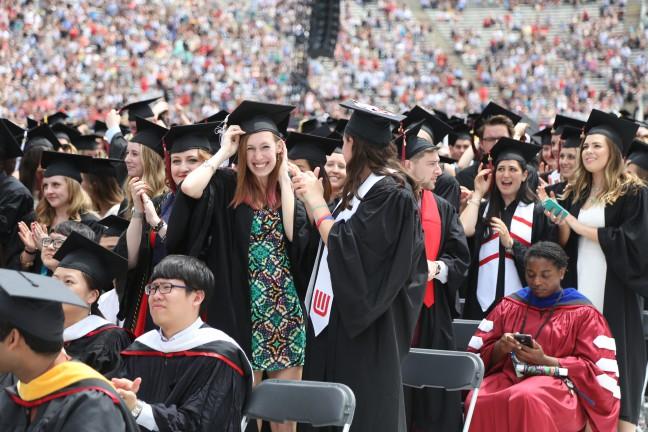I don’t know how much longer former Secretary of State Hillary Clinton and Republican nominee Donald Trump can go on ignoring the most important issue to college students.
Of course, I am talking about college affordability. Over the past 30 years, the cost of a college education has increased 1,120 percent, according to a Bloomberg study.
Since Obama took office, the cost of attending a four-year public school tuition and fees have increased by 17 percent while the CPI over the same period has only increased 10.3 percent.
So obviously, college affordability is a problem both candidates need to address.
But, surprisingly in the first two presidential debates, the word “college” was mentioned a total of four times, three times in the first debate and once in the second. Former Secretary of State Hillary Clinton made all of these references. Neither candidate has delved into their specific policy outlines to stymie the increasing cost of college.
Even on the campaign trail, college affordability mentions have been sparse.
Trump, unsurprisingly, has been avoiding talking about any policy standpoints, and has lately been going off script, leading to assertions that there is a global conspiracy against him to make him lose the presidential election.
Clinton, as well, has hasn’t talked much about college affordability, instead focusing on jobs and economic growth in recent campaign stops.
I understand that education isn’t an issue that directly affects every voter, but it still shapes every American’s life. Basic macroeconomic principles state that for the economy to expand, there must be a shift in one of the factors of production, labor or capital. Having a college-educated country increases human capital, causing the economy to expand. So in the long run, education effects everyone’s job prospects, even if the person didn’t go to college.
Ignoring an issue so crucial to millennials in the general election is especially pronounced seeing as in the Democratic and Republican primaries, college affordability was a main talking point. U.S. Sen. Bernie Sanders of Vermont and Florida U.S. Sen. Marco Rubio built their respective campaigns around college affordability, but offered two varying solutions to this problem.
Rubio called his ideas to make college affordable a “student investment plan,” which would allow investors to cover the cost of tuition for students in need of financial assistance. Maybe this isn’t the most realistic, but it is a very innovative plan that, if it could catch on, would have been able to vastly reduce the cost of college. This policy would, more than likely, apply to students seeking a graduate degree. But to help students save when getting their undergraduate degree, Rubio proposed diversifying how students can attain this degree, expanding online education services.
Sanders was the most progressive candidate in terms of what he would have provided for college students. In addition to making public two and four-year public colleges tuition free, he was a proponent of the refinancing of student loans and expanding need-based financial aid and work study programs.
Both of these kinds of programs were implemented when Bill Clinton was president. He both expanded the Pell Grant program and allowed for the refinance of student loans. If the current Democratic nominee were to implement the same programs as her husband, it would greatly help the current college student.
These are the college affordability bills Walker just signed into law
Trump’s complete ignorance and Clinton’s inability to shape discussion around college affordability are completely unforgivable, considering the eligible voting population of millennials equals the number of eligible baby boomers. It seems important to capitalize on this.
Since Trump and Clinton, respectively, are not doing enough in the presidential debates to inform students about their policies surrounding college affordability and probably won’t address it in the final debate, I feel the need to do it for them.
Trump truly has no concrete initiatives that combat the rising cost of college. His website states the goal to “ensure that the opportunity to attend a two or four-year college, or to pursue a trade or a skill set through vocational and technical education, will be easier to access, pay for, and finish.”
And Trump pledges to “work with Congress on reforms to ensure universities are making a good faith effort to reduce the cost of college and student debt in exchange for the federal tax breaks and tax dollars.”
This is, conservatively, a very sparse plan.
Clinton, comparatively, has a much more extensive plan. Her website says she will advocate for making all community colleges tuition free, advocates for loan refinancing and tells us how all her initiatives will be paid for — by taxing the wealthiest Americans.
It looks like all this non-talk about saving the college student money is hurting one person — Clinton.
Aaron Reilly ([email protected]) is a sophomore majoring in social work and economics.





















